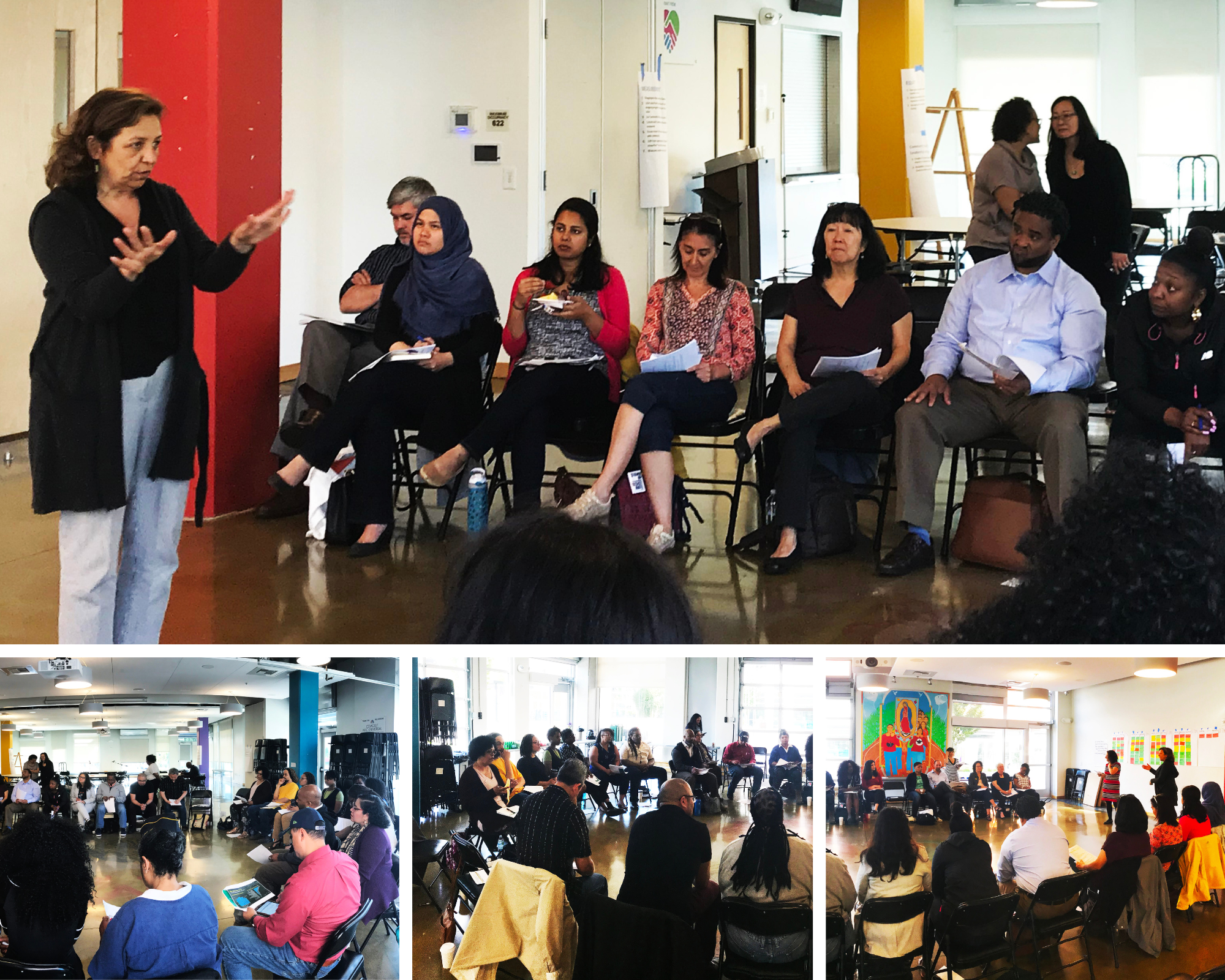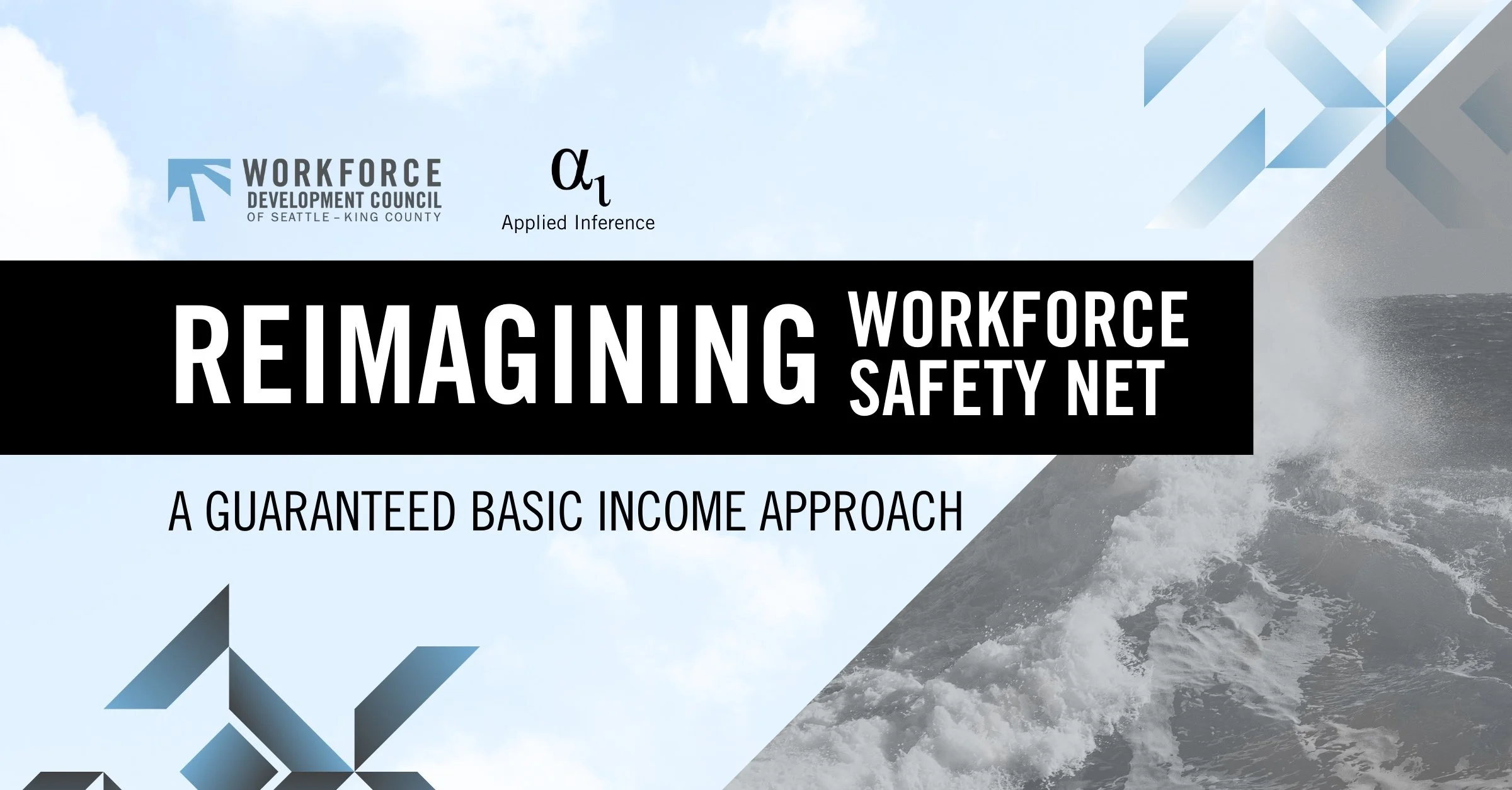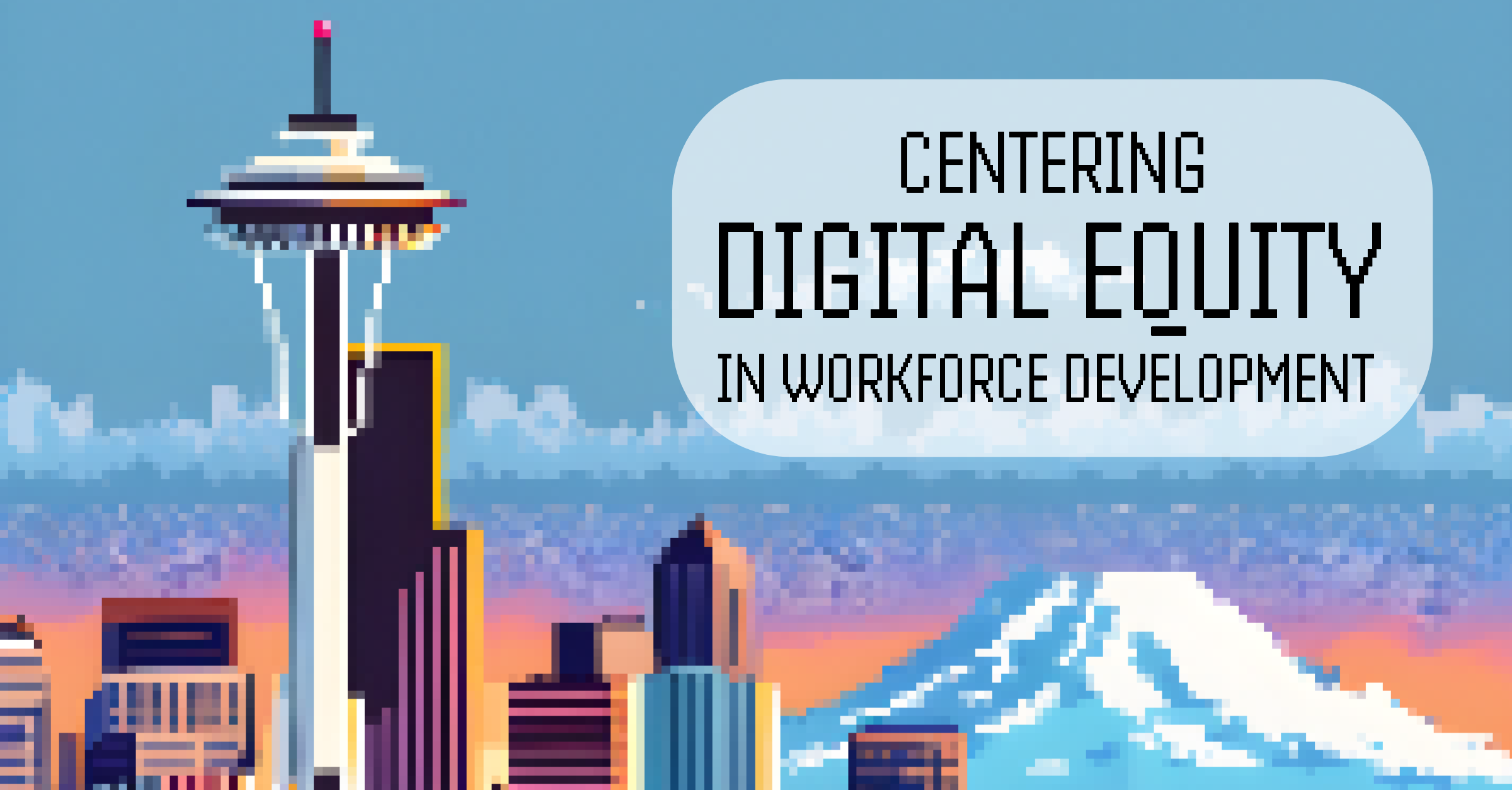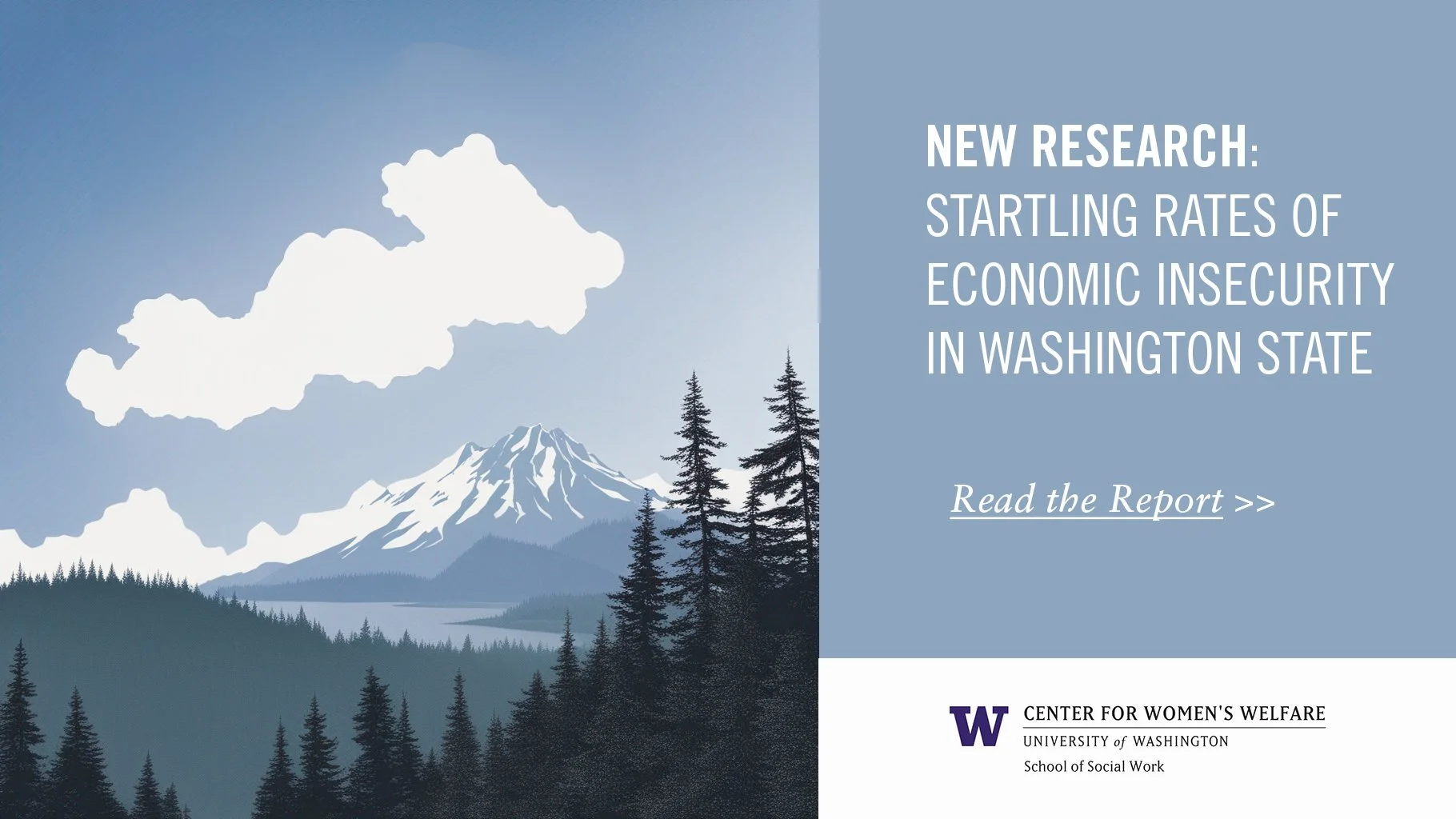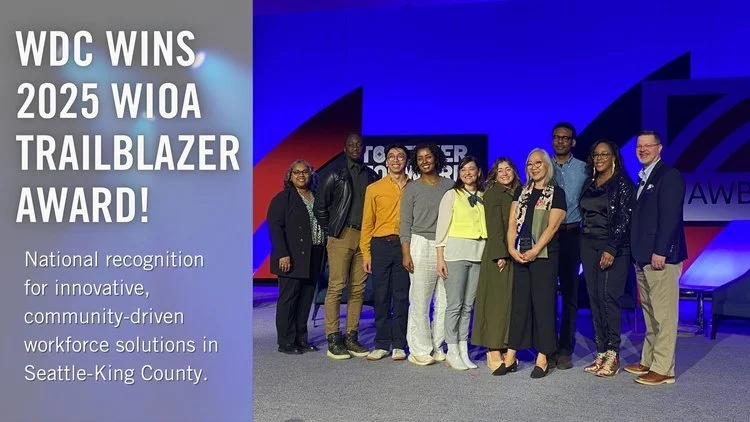
Our Transformation Story
Since 2017, the Workforce Development Council (WDC) of Seattle-King County has worked to transform into a best-in-class, equity-centered regional backbone organization. Guided by a bold strategic vision, we’ve shifted from a compliance-focused entity to a systems-change leader—building partnerships across business, labor, education, philanthropy, and community to make the workforce system more equitable, accessible, and responsive, while addressing systemic barriers and advocating for policies that support workforce equity.
A New Vision Emerges (2017-2018)
Photos from the 2018 Community Design Session, where over 40 stakeholders came together to reimagine a more equitable, inclusive, and responsive regional workforce system.
This transformation began in 2017, when the City of Seattle and King County partnered to reimagine the regional workforce system. Community engagement was central from the start, with early input from grassroots groups, employers, public agencies, and service providers. These conversations revealed the need for deeper equity, stronger coordination, and more flexible supports—particularly for workers facing housing instability, language barriers, justice system involvement, and other systemic challenges.
In May 2018, more than 40 stakeholders gathered at a Community Design Session to name the barriers—and solutions—needed for lasting change. From this effort came a shared vision: one where childcare, transportation, language access, and transparent systems are braided into a more inclusive workforce approach. Workgroups quickly followed, focusing on career pathways, opportunity youth, adult basic education, and financial stipends.
New Leadership and Strategic Direction (2019-2020)
By 2019, WDC had completed a national CEO search and welcomed Marie Kurose to lead the organization’s transformation. Under her leadership, WDC began to center racial equity, expand definitions of job quality, and develop new tools to measure and address disparities across the system. In partnership with national research organizations, WDC began to align baseline data with equity-focused goals—moving beyond traditional "skills attainment" models to a more holistic vision of economic mobility.
When the COVID-19 pandemic hit in early 2020, it exposed and exacerbated workforce disparities across the region. WDC responded swiftly, partnering with the Washington State Employment Security Department to support the overwhelmed unemployment system and pivoting services to meet urgent community needs such as digital access, safety, and income stability.
Planning for Equitable Recovery (2021)
Despite the crisis, WDC pushed forward with long-term planning. In 2021, the organization released a bold new strategic plan, Recover Better: A Regional Plan for Equitable Economic Recovery, developed in collaboration with equity and strategy experts. Paired with findings from the National Equity Atlas and other partners, the plan laid out a roadmap for system-wide change—including investments in digital equity, expanded access for Limited English Proficient (LEP) job seekers, equity-focused funding models, and stronger partnerships with employers to improve job quality.
The plan represented a major shift: WDC moved from focusing primarily on compliance with federal workforce funding to a broader role as a convener, innovator, and equity advocate.
Turning Strategy Into Action (2021-2023)
Backed by this strategic foundation, WDC launched a wave of innovative initiatives. With federal disaster recovery funding, WDC created temporary and permanent jobs in essential fields like vaccine education and food security, ultimately reaching more than 2,300 individuals through trusted community partners.
A new subrecipient funding model enabled smaller, community-based organizations to access federal workforce funds alongside larger service providers. With added technical assistance and capacity building, these partnerships uplifted underrepresented voices and brought more culturally responsive services to the region.
WDC also advanced efforts to support immigrants and refugees, improving coordination among providers, expanding language access, and embedding digital navigators to ensure equitable access to job search tools and services.
Innovating with Guaranteed Basic Income and Digital Equity (2022-2023)
Drawing on the strategic plan’s emphasis on flexible financial supports, WDC launched a Guaranteed Basic Income (GBI) pilot in Fall 2022. The pilot provided monthly payments to individuals facing economic hardship and yielded powerful outcomes: participants saw employment rates rise from 37% to 66%, reported increased financial stability, and experienced reduced stress and improved health. By leveraging public infrastructure to deliver philanthropic and local funding, the GBI pilot showed how direct cash assistance can remove barriers to stable careers, housing, and education.
Recognizing the digital divide as a critical equity issue, WDC also led Washington State's first comprehensive digital equity landscape analysis. In 2023, we launched the Digital Navigator Program, distributing devices and connectivity tools to more than 2,400 individuals and funding 12 community organizations to provide digital literacy training and support.
Data-Driven and Equity-Led (2023-2025)
WDC has also transformed how it uses data to inform decisions and measure equity. In partnership with the University of Washington, WDC released the 2023 report Overlooked and Undercounted, which revealed that 28% of working-age households in Washington struggle to meet basic needs—with disproportionate impacts on households of color and single mothers. These insights now guide investments and highlight where the system must improve.
Looking Ahead (2025 and Beyond)
In 2025, workforce development is navigating a time of profound change. Resource limitations, policy shifts, and rapid advances in artificial intelligence are challenging long-held assumptions about work, learning, and economic opportunity.
Amid these challenges, WDC remains focused on building a workforce system that is equitable, resilient, and responsive. In 2025, we launched Sound Jobs—a major initiative supporting quality employment and economic mobility in the hospitality sector—demonstrating how regional collaboration can drive impact where it’s needed most.
Our efforts have also been recognized nationally with the WIOA Trailblazer Award from the National Association of Workforce Boards, honoring our commitment to equity-centered innovation and systems change.
Together with our partners, we remain committed to building a more inclusive, resilient workforce system—one that works better for everyone.
Want to partner with us?
Let’s build a workforce system that works for everyone.


